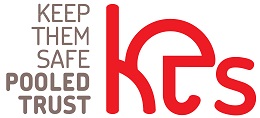This article is not intended to provide you with legal advice. Should you seek legal advice, please consult an attorney. KTS would gladly recommend an attorney should you need one. It’s important to have an attorney take appropriate actions on your behalf and to avoid issues that may be discussed in this article.
Many New York residents may not know if they are eligible for New York Medicaid if they own their own homes. To find out, you’ll need to explore the eligibility requirements for Medicaid for individuals who own their own homes, commonly referred to as “the homestead.”
It’s important to understand the different types of Medicaid available to New York residents. You’ll also need to know what assets are looked at in determining Medicaid eligibility. In addition, learn how you can protect your assets if you decide to apply for and take advantage of Medicaid benefits.
What is Medicaid?
Medicaid is a joint state and federal government benefits program that provides health care insurance to people with limited income and assets. More than 70 million Americans have taken advantage of Medicaid benefits at one time or another to help with unexpected healthcare costs. It is a social services assistance program that works.
But what exactly does limited income and assets mean? Will you qualify for Medicaid if you are a homeowner? What about other assets such as a car, money in savings bank accounts, retirement plans, IRAs, or life insurance policies?
There are many types of assets and income to consider. Therefore, understanding the rules that apply for the different kinds of Medicaid is essential.
Chronic Medicaid Option
The two main types of Medicaid program coverage that senior citizens who reside in New York apply for are Chronic Medicaid and Community Medicaid. Chronic Medicaid is for people who require long-term care or people who can no longer be cared for safely in their own homes. In other words, home care is not an option. To be eligible for Chronic Medicaid, individuals must be residents of New York State and fall into one of three categories: they must be 65 years old or older, blind, or disabled.
Many people mistakenly assume that their Medicare benefits will help with the costs of skilled nursing. But Medicare benefits do not provide any coverage for long-term care facilities. It is not that type of health plan. For seniors who do not have long-term care insurance, they will either need to apply for Medicaid or pay for these expenses out of pocket.
As you can imagine, the costs of a skilled nursing facility add up quickly. And many families have had to deal with the double whammy of these unexpected costs along with the failing health of their loved ones.
Community Medicaid Option
Another option is Community Medicaid, which allows recipients to remain in their communities, either in their own homes or in Assisted-Living facilities or assisted-living communities. This aptly named option provides assistance to seniors who wish to age in place. But these seniors require some level of care in order to do so.
Community Medicaid recipients usually require basic assistance with activities of daily living (ADLs) such as eating, dressing, toileting, bathing, and transferring. Benefits may include a personal care aide or community-based programs that can help an individual remain in the home. So, home care services are a key aspect of community Medicaid.
Determining Eligibility
When it comes to determining eligibility for Chronic Medicaid or Community Medicaid, the rules concerning the homestead are different for each program. For Chronic Medicaid, the rules are much stricter.
For Community Medicaid, so long as the equity value does not exceed the set limit, the homestead is considered exempt and isn’t included in resource calculations. However, the individual’s home is not automatically exempt with Chronic Medicaid.
Let’s dive more deeply into the rules that apply for individuals who own their homes and who require Chronic Medicaid coverage. Here is the specific language regarding homesteads in the New York Codes, Rules, and Regulations regarding exemptions:
According to elder law attorneys, Goldfarb Abrandt & Salzman, “For persons who are 65 years of age or older, certified blind or certified disabled, a homestead loses its exempt status if the owner moves out of the home without the intent to return, and no spouse, child under 21 years of age, certified blind or certified disabled child, or other dependent relative is living in the home.”
On the other hand, if the individual’s spouse is living in the home, the homestead could be exempt. Or if a minor/disabled/caretaker dependent resides in the home. If the individual doesn’t meet these requirements, the other big part of this equation is the individual’s intention to return to the home after their stay in the long-term care facility.
Intent to Return Home
The intention of an individual to return home is subjective and depends on each individual homeowner’s situation. The intent to return home can be written in the form of a signed statement/letter or an affidavit. A letter or affidavit may also be written and signed by the individual’s friends or family if they possess personal knowledge of the intent to return home. Goldfarb Abrandt & Salzman says that, “When these circumstances apply, the subjective intent to return home holds, even if there is the possibility or expectation that the individual will not be discharged and return to the home.”
A lien can be placed on the home by the state even though the individual is still alive. This may be the case if the individual is considered “permanently absent” and no discharge is reasonably expected. In such cases, the lien can be imposed even when the individual has a subjective intent to return home.
However, if certain occupants reside in the home, the state is not able to impose liens. These occupants include the individual’s spouse, a minor child who is either blind or disabled, or a sibling with equity interest. The sibling must also have lived in the home for a required minimum amount of time prior to the individual’s admission to the nursing home.
Medicaid application strategies for homeowners
If you are a senior citizen or disabled person in need of coverage through Medicaid and you own your own home, don’t despair. Having large assets such as a home does not automatically disqualify you for Medicaid coverage. Familiarizing yourself with the eligibility requirements early on is crucial.
Find an elder-law attorney who specializes in asset protection and Medicaid planning strategies. They can help you and your loved ones prepare an asset spend-down strategy to meet the requirements. Doing so will let you receive coverage without incurring penalties, liens, or estate-recovery tactics.
About the author, Carlos Nath:
Carlos Nath is the Senior Trust Advisor with KTS Pooled Trust. As a seasoned professional with over four years of experience in the New York pooled trust space, Carlos has helped thousands to enroll and set up their accounts with KTS. He is proficient in understanding the Medicare process and provides assistance in clarifying what clients may need. Previously, Carlos worked with a Medicaid consulting firm as an advisor who helped clients who were seeking Medicaid assistance.




